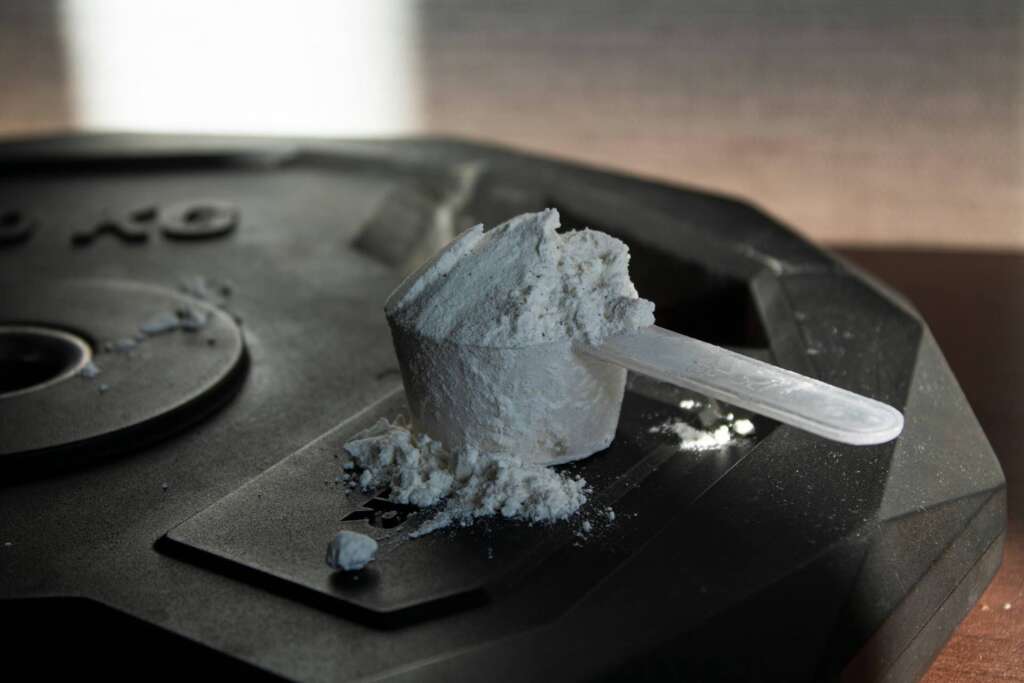Bigger, stronger, and more defined muscles aren’t just sculpted during your workouts. While lifting weights is vital, the real magic happens during recovery when your body repairs and builds new muscle tissue. This is where leucine, a powerhouse branched-chain amino acid (BCAA), plays a crucial role. BCAAs, including leucine, isoleucine, and valine, are essential amino acids that your body cannot produce, so you must obtain them through diet or supplements.
Leucine is particularly significant among the BCAAs for its role in muscle protein synthesis. It activates the mTOR pathway, a key regulator of cell growth and muscle repair, according to research published in the Journal of Nutrition. This activation not only promotes muscle growth but also enhances recovery, enabling athletes to train harder and more frequently.
Leucine supplementation has been shown to improve endurance, reduce muscle soreness, and boost overall athletic performance. A study in the American Journal of Clinical Nutrition found that this amino acid significantly increases muscle protein synthesis post-exercise, leading to greater muscle mass and strength gains over time.
Moreover, it helps prevent muscle loss during periods of calorie restriction or intense training by maintaining a positive nitrogen balance. This ensures that your body has the necessary building blocks to repair and grow muscle tissue even under stress.
Here is everything you need to know about this crucial amino acid, including how it aids muscle recovery and how to effectively incorporate it into your training session supplement stack to build the bigger, stronger and more impressive physique you want!
What is leucine?
It is an essential amino acid, meaning it cannot be produced by the body and must be obtained through diet or supplementation. It is one of the three branched-chain amino acids (BCAAs), along with isoleucine and valine. Leucine is particularly important for its role in stimulating muscle protein synthesis, the process by which the body builds new muscle tissue. It activates the mTOR pathway, a key regulator of cell growth and protein synthesis, making it a critical component of muscle recovery and growth.

Why is leucine so important to building bigger muscles?
It plays a vital role in muscle protein synthesis, recovery and growth. During intense exercise, muscle protein breakdown occurs, and leucine helps to stimulate the rebuilding process by activating the mTOR pathway. This leads to increased muscle mass, improved recovery, and enhanced performance. Additionally, it can help reduce muscle soreness and fatigue, allowing athletes to train harder and more frequently, according to the Journal of Nutrition.
Where can I get leucine?
It can be obtained from both dietary sources and supplements. The best foods include meat, poultry, fish, eggs, dairy products and legumes. Supplements are available in various forms, including powders, capsules, and ready-to-drink beverages. When choosing supplements, opt for high-quality products from reputable brands to ensure purity and efficacy. Many athletes prefer using supplements for convenience and precise dosing.
Should I be taking a leucine supplement?
It depends on your fitness goals and dietary intake. If you engage in intense, prolonged exercise or have difficulty meeting your protein needs through diet alone, supplementation can be beneficial. It is particularly useful for athletes looking to enhance muscle recovery, reduce soreness, and improve overall performance. However, if you already consume sufficient protein from food sources, additional supplementation may not be necessary. Consulting with a sports nutritionist can help determine if it is suitable for your specific needs.
How much leucine should I take?
The optimal dosage varies depending on individual needs and exercise intensity. Generally, a daily intake of 2g to 5g is recommended, divided into pre-workout, intra-workout, and post-workout servings. Higher doses may provide additional benefits but should be approached cautiously to avoid potential side effects. It’s important to follow dosing recommendations and consult with a healthcare professional to tailor intake to your specific needs and goals, according to the Journal of the International Society of Sports Nutrition.
How often should I take leucine?
It can be taken before, during, or after workouts to support muscle recovery and growth. Many athletes consume BCAA supplements during workouts to provide an immediate source of amino acids and reduce muscle breakdown. For optimal benefits, consider taking leucine daily, especially on training days. Consistent intake can help maintain adequate levels and support muscle recovery and growth.
Are there any risks to taking leucine?
It is generally considered safe for most people when taken within recommended dosages. However, excessive intake can pose risks, including potential imbalances with other amino acids and gastrointestinal issues. Some individuals may experience nausea, bloating, or diarrhoea with high doses. It’s crucial to follow dosing recommendations and consult with a healthcare professional before starting supplementation, especially if you have underlying health conditions or are taking other medications.




